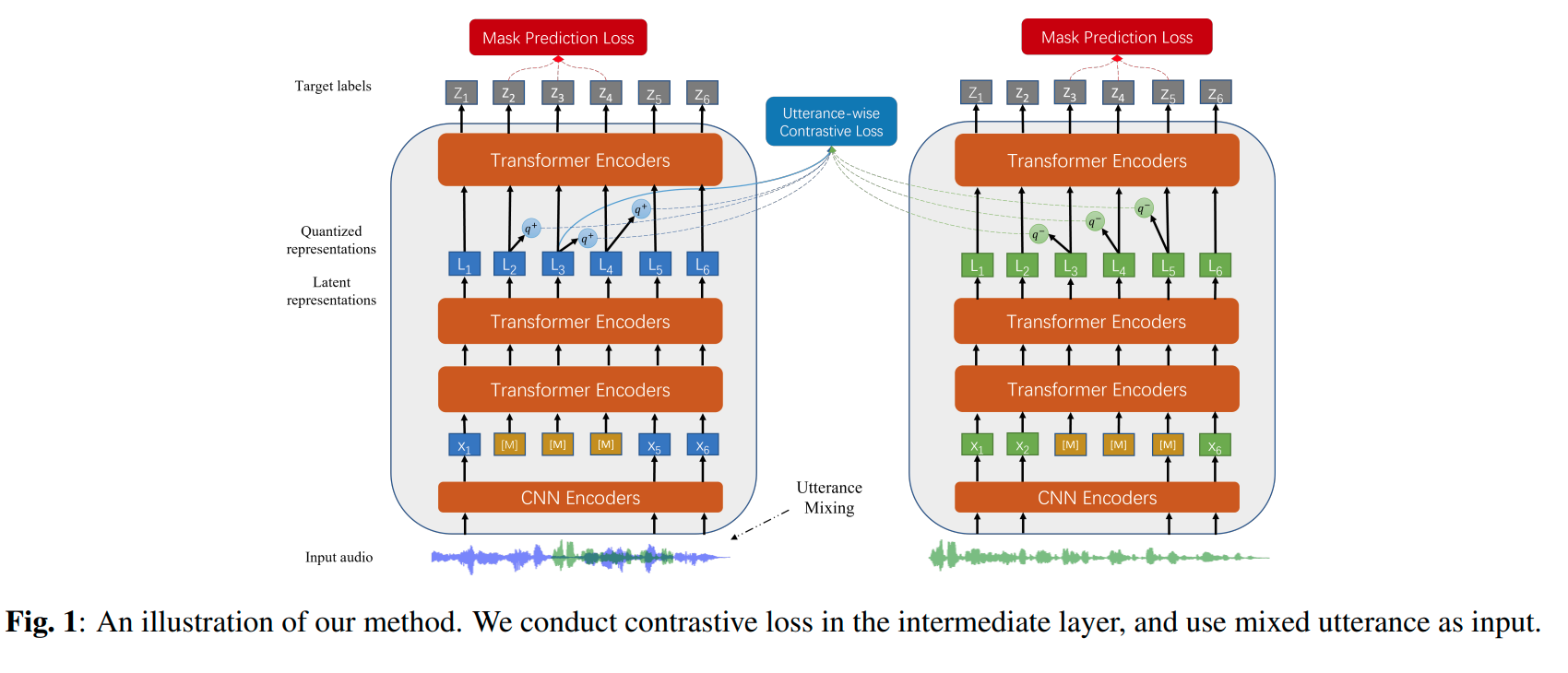UniSpeech-SAT-Base
The base model pretrained on 16kHz sampled speech audio with utterance and speaker contrastive loss. When using the model, make sure that your speech input is also sampled at 16kHz.
Note: This model does not have a tokenizer as it was pretrained on audio alone. In order to use this model speech recognition, a tokenizer should be created and the model should be fine-tuned on labeled text data. Check out this blog for more in-detail explanation of how to fine-tune the model.
The model was pre-trained on:
- 60,000 hours of Libri-Light
- 10,000 hours of GigaSpeech
- 24,000 hours of VoxPopuli
Paper: UNISPEECH-SAT: UNIVERSAL SPEECH REPRESENTATION LEARNING WITH SPEAKER AWARE PRE-TRAINING
Authors: Sanyuan Chen, Yu Wu, Chengyi Wang, Zhengyang Chen, Zhuo Chen, Shujie Liu, Jian Wu, Yao Qian, Furu Wei, Jinyu Li, Xiangzhan Yu
Abstract Self-supervised learning (SSL) is a long-standing goal for speech processing, since it utilizes large-scale unlabeled data and avoids extensive human labeling. Recent years witness great successes in applying self-supervised learning in speech recognition, while limited exploration was attempted in applying SSL for modeling speaker characteristics. In this paper, we aim to improve the existing SSL framework for speaker representation learning. Two methods are introduced for enhancing the unsupervised speaker information extraction. First, we apply the multi-task learning to the current SSL framework, where we integrate the utterance-wise contrastive loss with the SSL objective function. Second, for better speaker discrimination, we propose an utterance mixing strategy for data augmentation, where additional overlapped utterances are created unsupervisely and incorporate during training. We integrate the proposed methods into the HuBERT framework. Experiment results on SUPERB benchmark show that the proposed system achieves state-of-the-art performance in universal representation learning, especially for speaker identification oriented tasks. An ablation study is performed verifying the efficacy of each proposed method. Finally, we scale up training dataset to 94 thousand hours public audio data and achieve further performance improvement in all SUPERB tasks..
The original model can be found under https://github.com/microsoft/UniSpeech/tree/main/UniSpeech-SAT.
Usage
This is an English pre-trained speech model that has to be fine-tuned on a downstream task like speech recognition or audio classification before it can be used in inference. The model was pre-trained in English and should therefore perform well only in English. The model has been shown to work well on task such as speaker verification, speaker identification, and speaker diarization.
Note: The model was pre-trained on phonemes rather than characters. This means that one should make sure that the input text is converted to a sequence of phonemes before fine-tuning.
Speech Recognition
To fine-tune the model for speech recognition, see the official speech recognition example.
Speech Classification
To fine-tune the model for speech classification, see the official audio classification example.
Speaker Verification
TODO
Speaker Diarization
TODO
Contribution
The model was contributed by cywang and patrickvonplaten.
License
The official license can be found here
- Downloads last month
- 2,100
